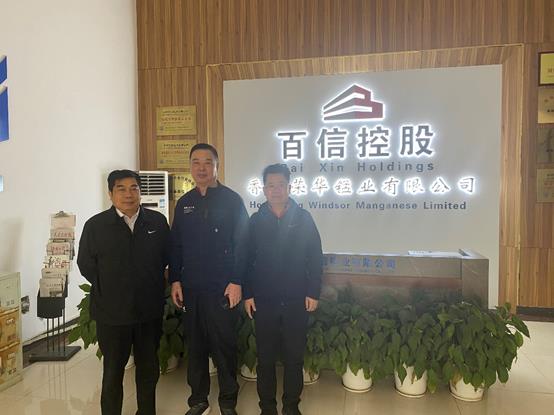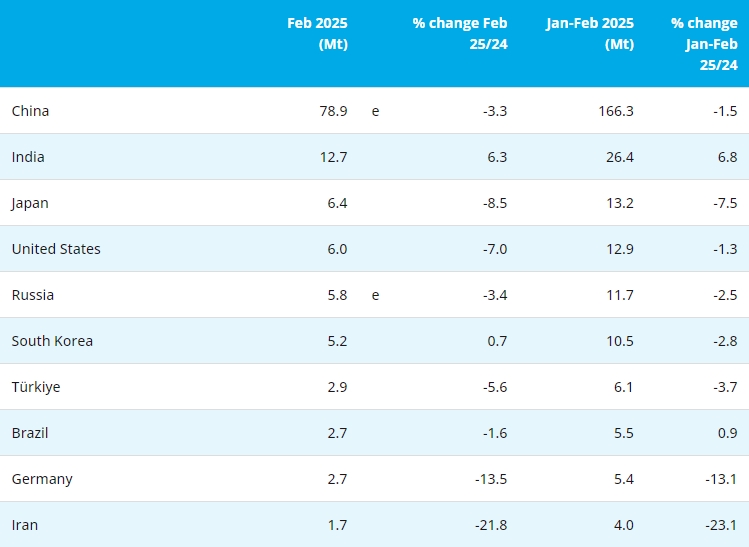At a press conference attended by Fastmarkets in Chile’s London embassy on Wednesday October 26, the minister highlighted a number of factors that, despite industry concerns, showed that Chile was a good and stable location for the mining industry.
The minister highlighted Chile’s commitment to the rule of law and to international treaties that would protect the mining industry, even if constitutional changes were made.
“As a nation are very clear and very respectful of our treaties and our agreements,” Hernando said.
“In Chile, there are legal certainties in relation to rule of law that were established in international treaties. Chile is in the middle of a network of investment treaties, [and] mining and mining investors in Chile are protected by these treaties. [If] a new constitution came into force in the future, and there were aspects of that new constitution that weren’t exactly equivalent to the standards [in place] today… we would still have these treaties,” she said.
“So, from the perspective of legal certainty — I am talking about mining specifically — no constitution could override these international treaties,” she said.
Hernando emphasized Chile’s welcoming attitude toward the mining sector, noting the positive effect that the industry has had in the country.
“I was worried to hear it suggested that Chile was a country that didn’t view mining in a good way,” she said. “We are a mining country. We have always made all [possible] efforts to include mining [in our plans] because it has been helping us to strengthen the country.”
Hernando discussed a number of concerns raised by industry participants in LME Week. “In panels this week, Chile has been mentioned a lot,” she said, “and I was a bit worried because they were referring to a situation in the past as if it were [still current].”
Hernando was at pains to dispel concerns that arose in discussions relating to projects that were no longer part of the Chilean government’s plans.
“One of the things they mentioned was a project on royalties, which has been modified,” she said. “We have been working with the ministry of finance, trade associations and industry parties, [taking note of] their observations and remarks - for example, on the potential loss of competitiveness due to an increase in royalties… When the press talk about royalties now, however, they talk about the proposals before the amendments were made, and not the current project being talked about in the senate.”
Chile’s current copper royalty project, which was amended on October 25, included a 1% ad valorem tax, as well as an 8-26% royalty based on mining companies’ operating margins.
The previous proposal would have led to higher taxes on larger companies, when the proposals included an ad valorem tax with effective rates between 1% and 2% for companies that produced 50,000-200,000 tonnes per year of copper. For companies producing more than 200,000 tpy, the rate would have been in the range of 1-4%.
Beyond this, there was also a proposed tax on operating profits, with rates between 2% and 32%. Sociedad Nacional De Mineria De Chile (Sonami) said that the previous proposals could have led to royalties and taxes on miners reaching an effective rate of 55-60%.
Hernando said that now, however, the current proposals would keep taxes more in line with those of other mining jurisdictions.
“There are several observations from the mining industry that we have added to the tax and we have added to these indications,” she said. “We would like to average the tax so it will be similar to [the duty paid in] other countries.”
Hernando also said that nationalization of the mining industry, despite some concerns raised during LME Week and in recent months, was “off the table” and was not part of President Gabriel Boric’s plans for Chile.
“The mining industry was afraid of nationalization,” Hernando said. “This was never part of the program for Gabriel Boric, or the constitution.”
The minister highlighted the mining industry’s importance in respect of a number of past and future technological advances in Chile. “Mining companies helped us to start the transition to non-conventional renewable energy,” she said. “The same happened with water, with mining leading the push to desalination.”
Hernando was highting those examples, she said, “because mining has always been the driving force — we are a mining country.”
The overall message to the conference was that mining companies should continue to invest in Chile.fastmarkets
Copyright © 2013 Ferro-Alloys.Com. All Rights Reserved. Without permission, any unit and individual shall not copy or reprint!
- [Editor:kangmingfei]



 Save
Save Print
Print Daily News
Daily News Research
Research Magazine
Magazine Company Database
Company Database Customized Database
Customized Database Conferences
Conferences Advertisement
Advertisement Trade
Trade














 Online inquiry
Online inquiry Contact
Contact

Tell Us What You Think